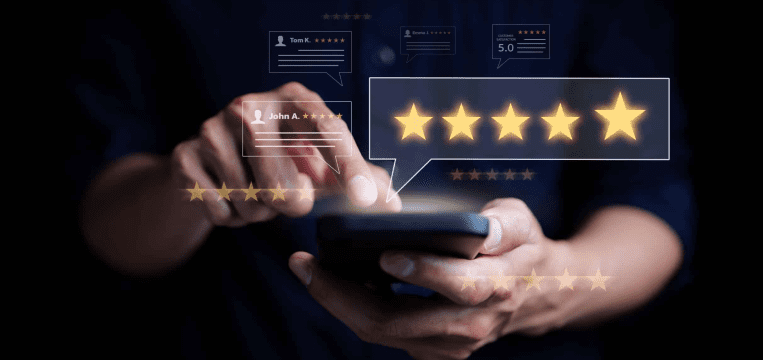Mobile apps have transformed how companies operate and communicate with their customers. From improved customer engagement and brand loyalty to increased operational efficiency and revenue generation, an effective mobile strategy provides numerous advantages. Apps are now an essential component of modern business strategies.
In this article, we explore the key benefits mobile apps hold for companies and how they enable businesses to stay ahead.
1. Accelerated revenue generation
Companies can generate revenue using mobile apps in a variety of ways. Common monetization options include in-app purchases, subscriptions, and mobile advertising. A simple, seamless app experience and interesting features encourage users to make purchases (or watch ads).
Furthermore, businesses can use applications as a platform to demonstrate and advertise specific items or services. A simple way to increase sales is to regularly show customers personalized recommendations of new products, based on their view and purchase history. App-based loyalty programs can boost revenue even further.
2. Enhanced customer loyalty & engagement
Mobile applications give companies a personal, direct marketing channel to their users. With push notifications and in-app messaging, businesses can deliver targeted, relevant, and highly personalized information. Not only does this increase immediate user engagement, it also strengthens the connection between the company and its customers, improving brand loyalty and customer satisfaction.
Push notifications, for example, are a great way to announce new features or in-app content – though they should be specifically tailored to the user’s previous behavior and preferences. This way, users are regularly reminded to use the mobile app, but without being flooded with unnecessary information that could repel them.
3. Streamlined processes and cost efficiency
Enterprises can also use mobile apps to streamline their internal business processes. They help automate repetitive tasks such as inventory management, personnel scheduling, or order processing, thus increasing productivity, minimizing human error, and reducing costs.
Additionally, they can provide real-time data and analytics, enabling businesses to make informed choices to optimize their operations and resource distribution.
The gains can be dramatic: Deutsche Telekom was able to cut document submission time from three days to three minutes. With the internal app, employees can now scan relevant documents with their mobile devices and submit them digitally within milliseconds. Paired with automated data extraction, this eliminated the need for manual processing in the back-office and resulted in significant cost savings.

4. Boosting brand awareness & competitive advantage
Modern customers expect businesses to have a mobile presence. This has a growing impact on buying decisions, giving an edge to enterprises that do offer a mobile application.
Businesses that deliver a well-designed, versatile app can distinguish themselves from their competitors and show their commitment to putting the customer first. Additionally, a mobile app can be a powerful branding tool, reinforcing brand identity and demonstrating the company’s thought leadership.
Health insurance apps are a great example here. Many offer more than just basic services, such as mobile document submission. Instead, they comprehensively cover health and fitness topics. This way, insurers can establish themselves as thought leaders around these topics, showing that they are committed to assisting their customers beyond the typical services.
5. Efficient customer support & service
Thanks to mobile apps, businesses can provide outstanding customer support and service. With quicker responses to questions and issues through tools like in-app chatbots or support requests, they improve the entire customer experience. Knowledge bases, FAQs, and other self-service app features allow users to get common answers at any time – without having to pick up the phone to ask for help.
Additionally, mobile apps can be used to collect customer feedback to enhance processes and offering further.
This way, enterprises can establish a reputation for great service and foster customer loyalty with effective, timely customer care.
6. Data collection & customer insights
Finally, enterprises can use mobile apps to collect valuable data and insights into consumer behavior. By analyzing user behavior and interactions within the app, companies can tailor their offerings directly to their target audience.
The data can be leveraged to study purchasing patterns, demand, or user flows. This information helps enterprises refine their marketing strategies, personalize the mobile app experience, and develop products or services that fulfill the current demand.
The retail industry provides a very practical example. Imagine an enterprise seeing an increased in-app search volume for yellow skirts. These searches are unsuccessful, however, because the store does not currently stock any yellow skirts. As these numbers are available in real-time, the retailer can quickly adjust to the high demand by ordering the desired piece of clothing for its customers.
Leveraging a mobile app effectively promotes sales and creates long-term customer relationships
The shift to mobile devices has completely changed the way businesses operate, enabling them to increase client interaction and operate more efficiently. With modern mobile applications, companies can improve customer loyalty and engagement, promote sales, streamline operations, and deliver top-notch service to set themselves apart from rivals.
Today, therefore, mobile applications are no longer a nice-to-have – they are vital tools for businesses that want to succeed.



